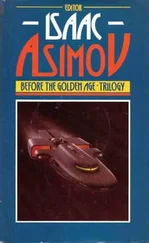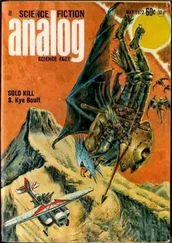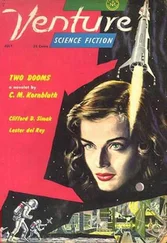Clifford Simak - Ring Around the Sun
Здесь есть возможность читать онлайн «Clifford Simak - Ring Around the Sun» весь текст электронной книги совершенно бесплатно (целиком полную версию без сокращений). В некоторых случаях можно слушать аудио, скачать через торрент в формате fb2 и присутствует краткое содержание. Жанр: Фантастика и фэнтези, на английском языке. Описание произведения, (предисловие) а так же отзывы посетителей доступны на портале библиотеки ЛибКат.
- Название:Ring Around the Sun
- Автор:
- Жанр:
- Год:неизвестен
- ISBN:нет данных
- Рейтинг книги:5 / 5. Голосов: 1
-
Избранное:Добавить в избранное
- Отзывы:
-
Ваша оценка:
- 100
- 1
- 2
- 3
- 4
- 5
Ring Around the Sun: краткое содержание, описание и аннотация
Предлагаем к чтению аннотацию, описание, краткое содержание или предисловие (зависит от того, что написал сам автор книги «Ring Around the Sun»). Если вы не нашли необходимую информацию о книге — напишите в комментариях, мы постараемся отыскать её.
Ring Around the Sun — читать онлайн бесплатно полную книгу (весь текст) целиком
Ниже представлен текст книги, разбитый по страницам. Система сохранения места последней прочитанной страницы, позволяет с удобством читать онлайн бесплатно книгу «Ring Around the Sun», без необходимости каждый раз заново искать на чём Вы остановились. Поставьте закладку, и сможете в любой момент перейти на страницу, на которой закончили чтение.
Интервал:
Закладка:
"As fast as they come," said Flanders.
"I can count on that?"
"You can count on that." Flanders shook his head. "I don't know what you're planning. I hope your hunch is right."
"You said it was," Vickers declared.
"You know what you're going up against? You know what Crawford's planning?"
"I think he's planning war, He said it was a secret weapon, but I'm convinced it's war."
"But war…"
"Let's look at war," said Vickers, "just a little differently than it ever has been looked at, just a little differently than the historians see it. Let's see it as a business. Because war, in certain aspects, is just that. When a country goes to war, it means that labor and industry and resources are mobilized and controlled by governments. The businessman plays as important a part as does the military man. The banker and the industrialist is as much in the saddle as the general.
"Now let's go one step further and imagine a war fought on strictly business lines — for the strictly business purpose of obtaining and retaining control in those very areas where we are threatening. War would mean that the system of supply and demand would be suspended and that certain civilian items would cease to be manufactured and that the governments could crack down on anyone who would attempt to sell them…"
"Like cars, perhaps," said Flanders, "and lighters and even razor blades."
"Exactly," Vickers told him. "That way they could gain the time, for they need time as badly as we do. On military pretext, they'd seize complete control of the world economy."
"What you're saying," Flanders said, "is that they plan to start war by agreement."
"I'm convinced that's it," said Vickers. "They'd hold it to a minimum. Perhaps one bomb on New York in return for a bomb on Moscow and another on Chicago for one on Leningrad. You get the idea — a restricted war, a gentleman's agreement. Just enough fighting to convince everyone that it was real.
"But phoney as it might be, a lot of people would die and there'd always be the danger that someone would get sore — and instead of one bomb on Moscow it might be two, or the other way around, or an admiral might get just a bit too enthusiastic and a bit too accurate and sink a ship that wasn't in the deal or a general might —»
"It's fantastic," Flanders said.
"You forget that they are very desperate men. You forget that they are fighting, every one of them, Russian and American, French and Pole and Czech, for the kind of life that Man has built upon the Earth. To them we must appear to be the most vicious enemy mankind's ever faced. To them we are the ogre and the goblin out of the nursery tale. They are frightened stiff."
"And you?" asked Flanders.
"I'd go back to the old Earth, except I lost the top. I don't know where I lost it, but…"
"You don't need the top. That was just for novices. All you have to do is will yourself into the other world. Once you've done it, it's a cinch."
"If I need to get in touch with you?"
"Eb's your man," said Flanders. "Just get hold of Eb."
"You'll send Asa and the others back?"
"We will."
Vickers rose and held out his hand.
"But," said Flanders, "you don't need to leave just yet. Sit down and have another cup of coffee."
Vickers shook his head. "I'm anxious to get going."
"The robots could get you lined up with New York in no time at all," suggested Flanders. "You could return to the old Earth from there."
He knew that a Vickers family, a poor farm family, had lived not more than a mile from where he stood. He thought of them — the woman, courageous in her ragged dress and drab sweater; the man with the pitiful little shelf of books beside his bed and how he used to sit in faded overalls and too-big shirt, reading the books in the dim yellowness of the kerosene lamp; the boy, a helter-skelter sort of kid who had too much imagination and once went to fairyland.
Masquerade, he thought — a bitter masquerade, a listening post set out to spy out the talk of enemies. But it had been their job and they had done it well and they had watched their son grow into a youth and knew by the manner of his growing that he was no throw-back, but truly one of them.
And now they waited, those two who had posed as lonely farmer folk for all the anxious years, fitting themselves into an ordinary niche which was never meant for such as they, against the day when they could take their rightful place in the society which they had given up to stand outpost duty for the big brick house standing proudly on its hill.
He could not turn his back on them and now there was no need to turn his back on them — for there was nothing else.
He walked across the dining room and along the hall that led to the closed front door and he left behind him a trail of footprints in the dust.
Outside the door, he knew, was nothing — not Ann, nor Kathleen, nor any place for him — nothing but the cold knife-edge of duty to a life he had not chosen.
He had his moments of doubt while he drove across the country, savoring the goodness of the things he saw and heard and smelled — the little villages sleeping in the depth of summer with their bicycles and canted coaster wagons, with their shade trees along neat avenues of homes; the first reddening of the early summer apples on the orchard trees; the friendly bumbling of the great transport trucks as they howled along the highways; the way the girl behind the counter smiled at you when you stopped at a roadside eating place for a cup of coffee.
There was nothing wrong, he told himself, nothing wrong with the little villages or the trucks or the girl who smiled. Man's world was a pleasant and a fruitful place, a good place in which to live.
It was then that the mutants and their plans seemed like a nightmare snatched from some lurid Sunday supplement and he wondered, as he drove along, why he didn't simply pull off the road and let the car sit there while he walked off into this good life he saw on every hand. Surely there was within it some place for a man like him: somewhere in the flat corn lands, where the little villages clung to every crossroad, that a man could find peace and security.
But he saw, reluctantly, that he did not seek these things for themselves alone. He sought a place to hide from the thing one could sense in the very air. In wanting to leave his car beside the road and walk away, he knew, he was responding to the same bone-deep fear as the Pretentionists when they escaped emotionally to some other time and place. It was the urge to flee that made him want to leave the car and find a hiding place in the calmness of these corn lands.
But even here, in the agricultural heart of the continent, there was no real peace and security. There was creature comfort and, at times, some measure of unthinking security — if you never read a paper nor listened to a broadcast and did not talk with people. For, he realized, the signposts of insecurity could be found everywhere under the sunlit exteriors: on every doorstep and in every home and at every drugstore corner.
He read the papers and the news was bad. He listened to the radio and the commentators were talking about a new and deeper crisis than the world had ever faced. He listened to the people talking in the lobbies of the hotels where he stopped to spend the nights or in the eating places where he stopped along the road. They would talk and shake their heads and one could see that they were worried.
They said: "What I can't understand is how things could change so quick. Here, just a week or two ago, it looked like the East and West would band together against this mutant business. At last they had something they could fight together instead of fighting one another, but now they're back at it again and it's worse than ever."
Читать дальшеИнтервал:
Закладка:
Похожие книги на «Ring Around the Sun»
Представляем Вашему вниманию похожие книги на «Ring Around the Sun» списком для выбора. Мы отобрали схожую по названию и смыслу литературу в надежде предоставить читателям больше вариантов отыскать новые, интересные, ещё непрочитанные произведения.
Обсуждение, отзывы о книге «Ring Around the Sun» и просто собственные мнения читателей. Оставьте ваши комментарии, напишите, что Вы думаете о произведении, его смысле или главных героях. Укажите что конкретно понравилось, а что нет, и почему Вы так считаете.









